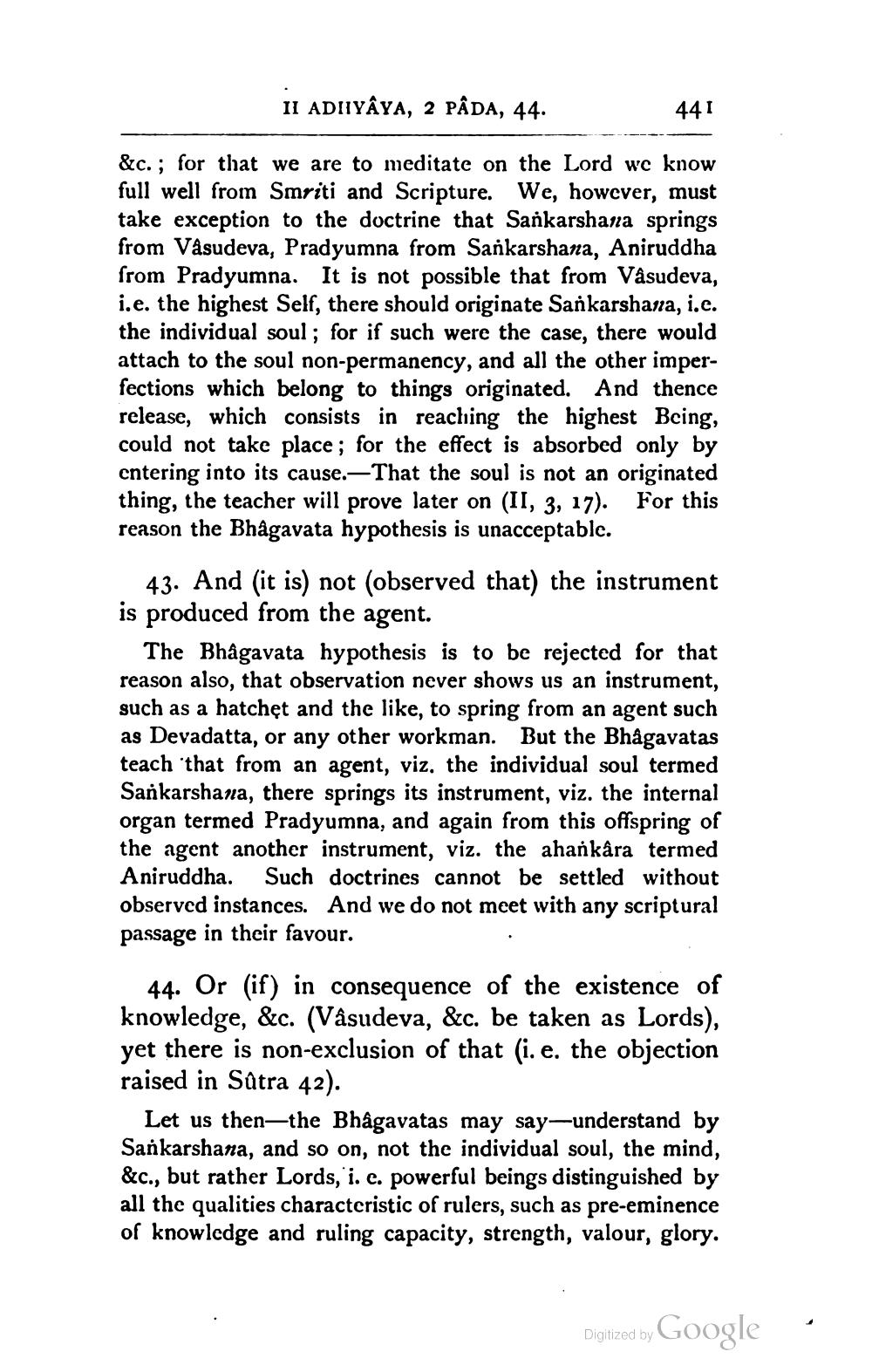________________
II ADITYAYA, 2 PÂDA, 44.
441
&c.; for that we are to meditate on the Lord we know full well from Smriti and Scripture. We, however, must take exception to the doctrine that Sankarshana springs from Vasudeva, Pradyumna from Sankarshana, Aniruddha from Pradyumna. It is not possible that from Vasudeva, i.e. the highest Self, there should originate Sankarshana, i.c. the individual soul; for if such were the case, there would attach to the soul non-permanency, and all the other imperfections which belong to things originated. And thence release, which consists in reaching the highest Bcing, could not take place; for the effect is absorbed only by cntering into its cause.—That the soul is not an originated thing, the teacher will prove later on (II, 3, 17). For this reason the Bhagavata hypothesis is unacceptable.
43. And (it is) not (observed that) the instrument is produced from the agent.
The Bhagavata hypothesis is to be rejected for that reason also, that observation never shows us an instrument, such as a hatchęt and the like, to spring from an agent such as Devadatta, or any other workman. But the Bhagavatas teach that from an agent, viz, the individual soul termed Sarkarshana, there springs its instrument, viz. the internal organ termed Pradyumna, and again from this offspring of the agent another instrument, viz. the ahankâra termed Aniruddha. Such doctrines cannot be settled without observed instances. And we do not meet with any scriptural passage in their favour.
44. Or (if) in consequence of the existence of knowledge, &c. (Vasudeva, &c. be taken as Lords), yet there is non-exclusion of that (i.e. the objection raised in Sätra 42).
Let us then—the Bhagavatas may say—understand by Sankarshana, and so on, not the individual soul, the mind, &c., but rather Lords, i. e. powerful beings distinguished by all the qualities characteristic of rulers, such as pre-eminence of knowledge and ruling capacity, strength, valour, glory.
Digitized by Google
Digitized by
.




